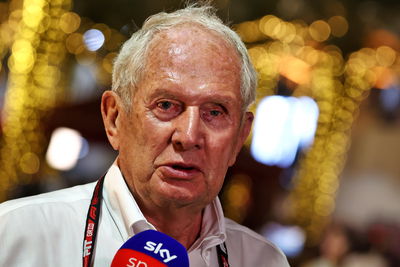How F1 is becoming the new business school
Education is essential to Formula 1. The sport relies on an influx of highly educated specialists with advanced degrees in engineering, materials technology, mathematics, without whom cars couldn’t be designed and would never race.
F1 has never been blind to the importance of STEM (science, technology, engineering, and mathematics) education – the F1 in Schools programme has been running for nearly two decades with the aim of increasing interest in STEM education at secondary level, and has seen a number of its graduates progress to full-time roles in F1.

Education is essential to Formula 1. The sport relies on an influx of highly educated specialists with advanced degrees in engineering, materials technology, mathematics, without whom cars couldn’t be designed and would never race.
F1 has never been blind to the importance of STEM (science, technology, engineering, and mathematics) education – the F1 in Schools programme has been running for nearly two decades with the aim of increasing interest in STEM education at secondary level, and has seen a number of its graduates progress to full-time roles in F1.
But learning doesn’t stop with school, or at university, and it is lifelong learning that has become the focus of the sport’s new owners.
The Italian Grand Prix weekend saw the inaugural edition of the ‘F1 Extreme Innovation’ series, in association with the Massachusetts Institute of Technology MIT Management Executive Education programme.
The series uses F1’s vast experience in areas like data analysis, operational efficiency, and the ongoing pursuit of excellence to help school executives in other businesses in how best to apply F1’s knowledge and experience to their own industries.
The concept is not a new one – McLaren has been working with global businesses for years, helping the likes of GlaxoSmithKline streamline production – but formally structuring a day’s activities inside the paddock, with keynote speakers, workshop participation, and a series of lectures and seminars is something that F1 (as a sport, not a corporate entity) has never been done before.
Early indications are that the Extreme Innovation series has been popular with blue-chip companies and in addition to the F1 faces present, companies as wide-ranging as Boeing, PwC, and Bank of America had sent representatives to the Monza session, which looked at data, analytics, and strategy.
The event itself was off the record, and no quotes from speakers were permitted to leave the room. But a highlight was an illuminating presentation on the wealth of data now integral to F1, and the exponential growth of data sets and their relevance over the past two decades.
Much of the information would be familiar to a dedicated F1 fan, but for the business leaders in the room the concept of conducting up to two million race simulations in the run-up to a grand prix was mind-boggling. Add to that the approximately 50,000 data channels of information from driver and car alike, around 1,000 of which are live, and F1’s position as an authority on data collection and analytics was beyond doubt.
From a business perspective, the next obstacle for F1 is data saturation. An estimated ten to 15 percent of the world’s electricity is currently being used to power server farms, and as the amount of digital data increases so too does our reliance on being able not only to store it, but also to make best use of it.
The volume of data currently being generated by an F1 car is such that it has been over a decade since human beings were capable of interpreting it without machine help. Several race teams now have technical partnerships with IT companies who develop bespoke programmes to help them manage and analyse their data, and machine learning and artificial intelligence are becoming additional and invisible members of the team.
As well as pushing boundaries from lights to flag, F1 is helping to advance the development of the technological and data tools that businesses will come to rely on ever more in the years to come. Formula 1 as a business has identified that, and the Extreme Innovation series is an excellent way to remind the rest of the world that this sport has a lot more to offer than simply the action on track.
F1 director of strategy Yath Gangakumaran, formerly of Sky Sports, explained the thinking behind the series, which will see its second running in Austin later this year, with more events to come in 2019.
“We think there’s a huge opportunity for F1 to leverage the high performance environment of the sport to facilitate discussions around key themes in business,” Gangakumaran told Crash.net. “F1 is a sport that has been innovating for 68 years, and every two weeks new innovations come. The competition is hugely intense – every two weeks, someone wins and someone loses. Business is the same.
“We think there are examples we can take from the F1 world that are relevant to the business world and we wanted to take that idea and translate it into something that would be value-added for the business community.
“MIT was voted the best university in the world, and their Sloan School of Education educates thousands of business leaders every year. At the same time, MIT are tech-related. Tech is at the heart of what we do, so we thought it would be a perfect fit.
“We wanted it to be relevant to business, and we’ve come up with themes that we think are relevant to F1 and to the business community. The first event at Monza was based on the theme of winning against intense competition. We’ve got MIT faculty in who will provide the management frameworks that underpin the thinking on how to win in this situation, we provide F1 examples, and then we flip everything that’s been said back to the attendees and ask them how what they’ve just heard applies to their business.”











